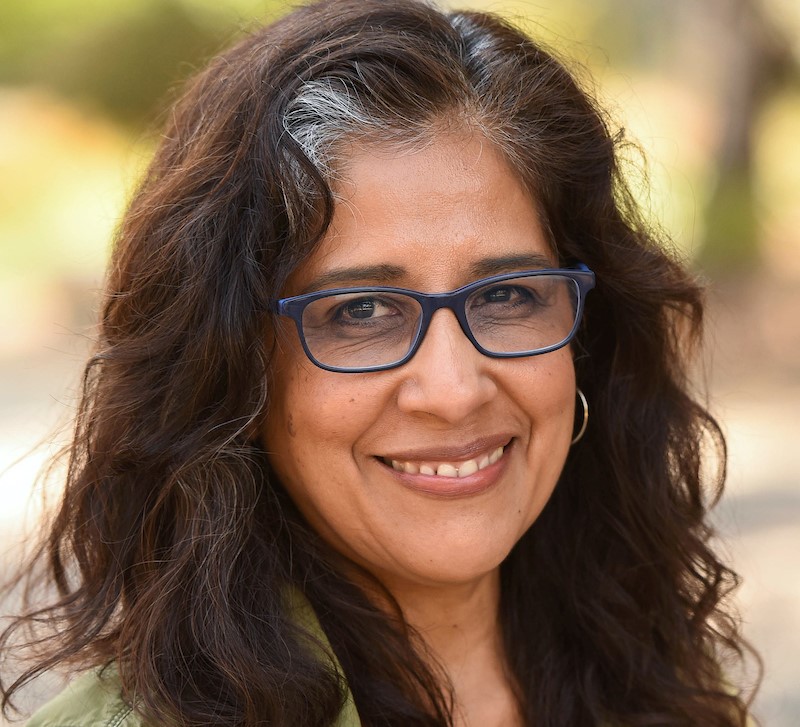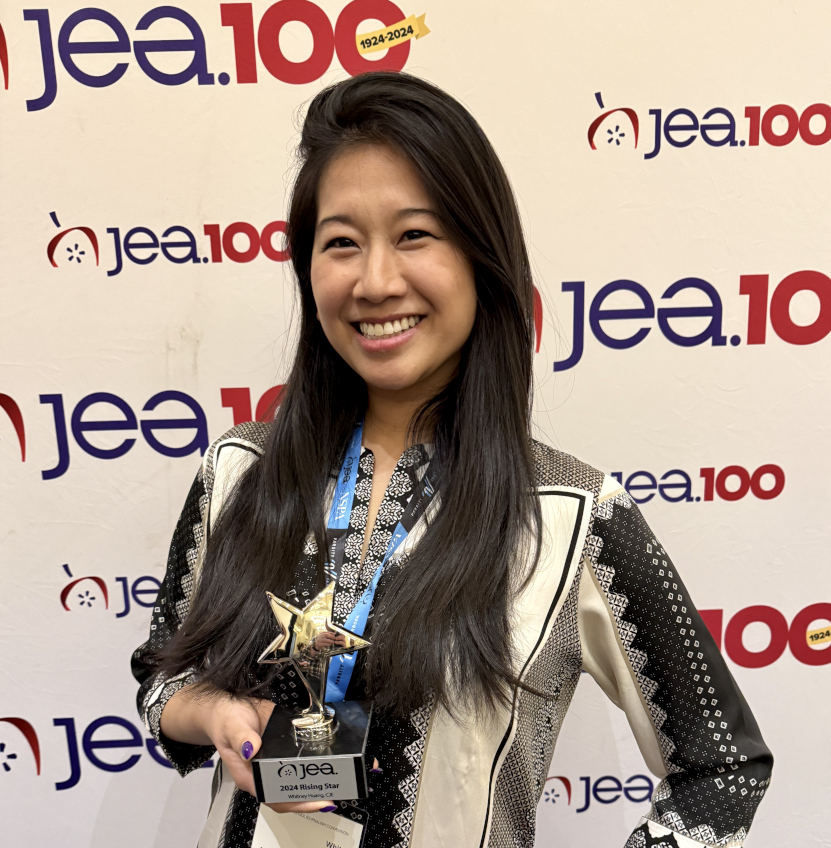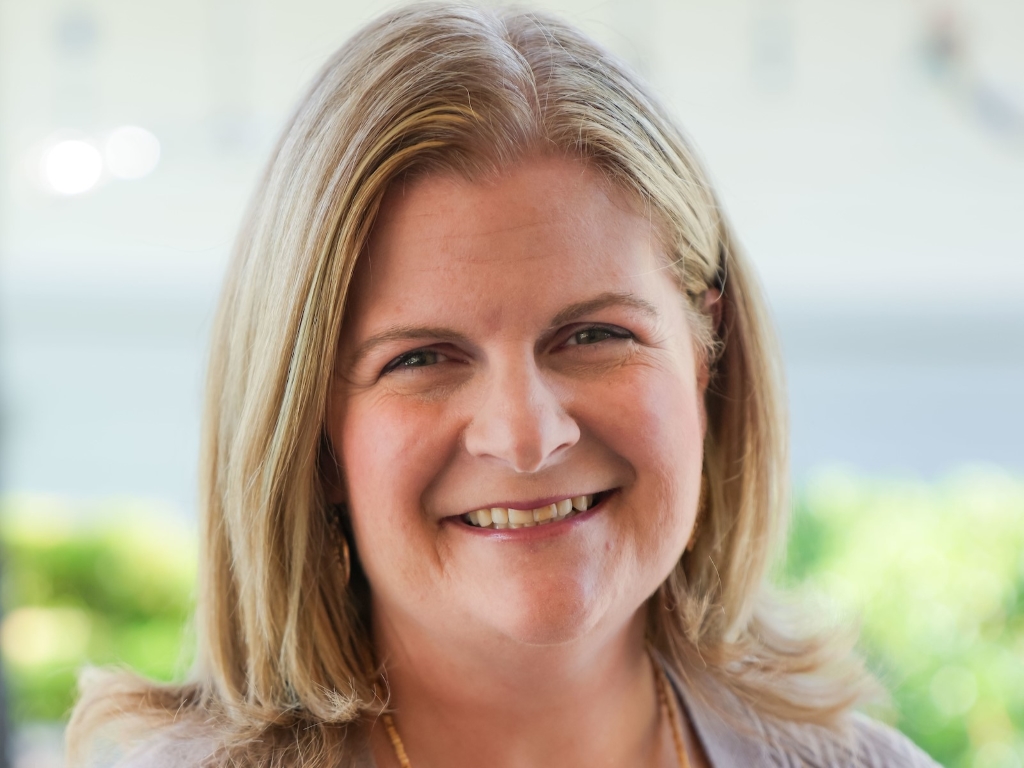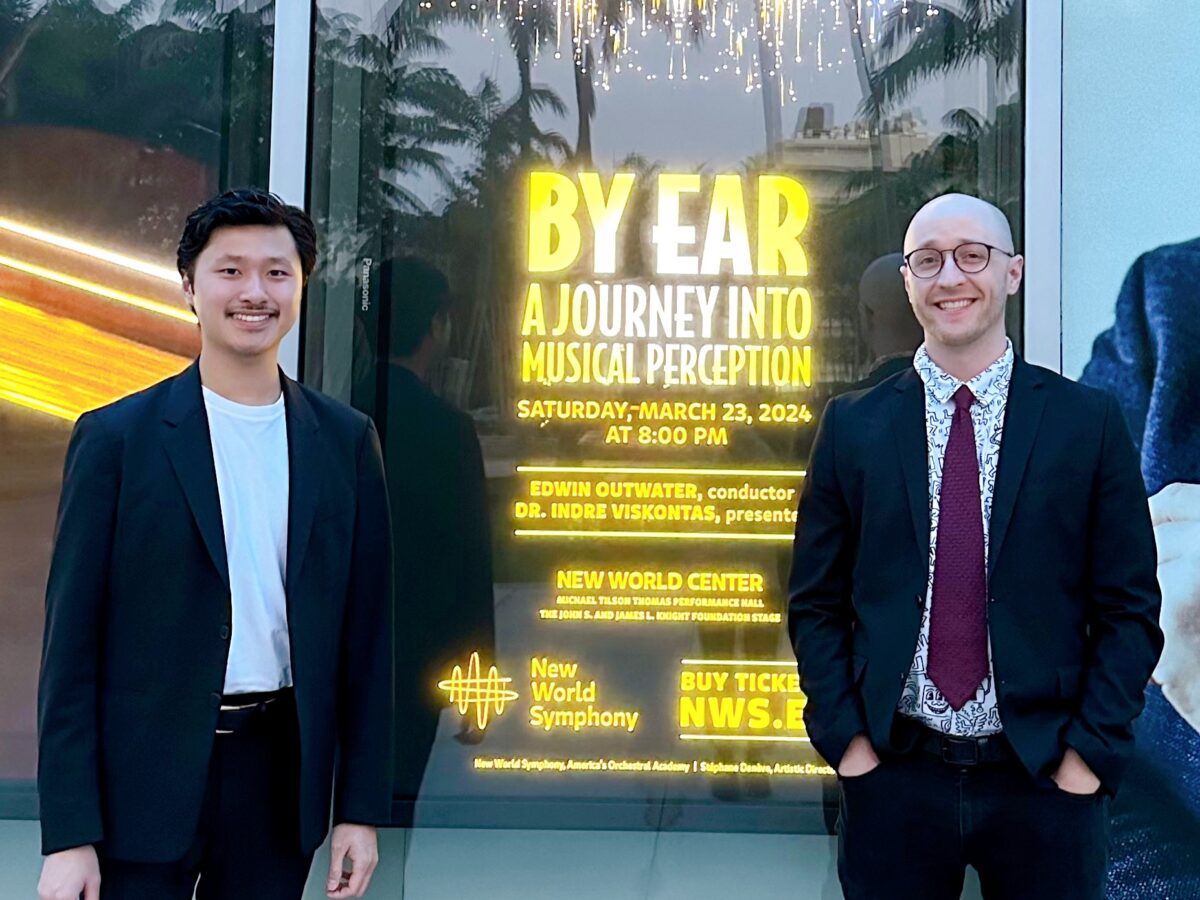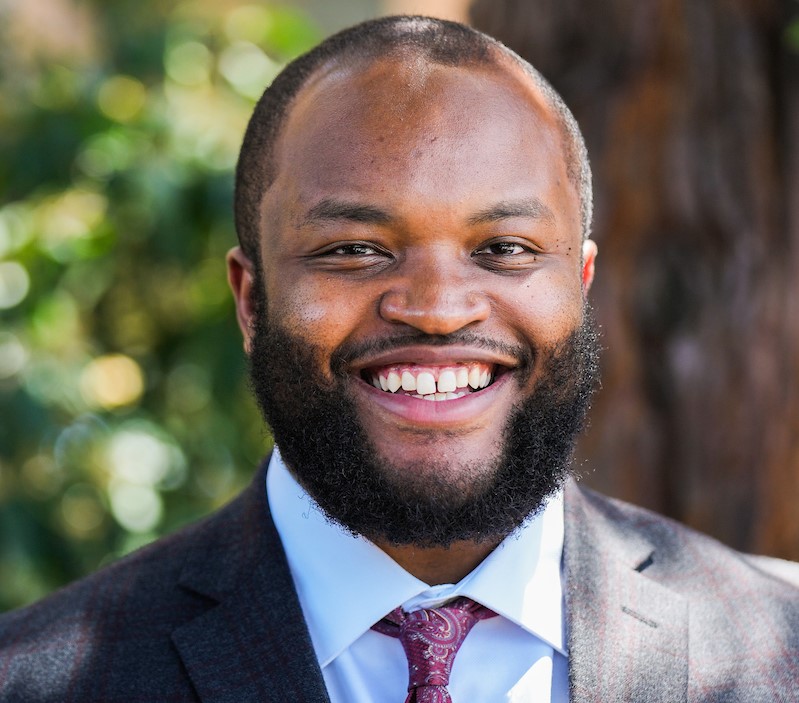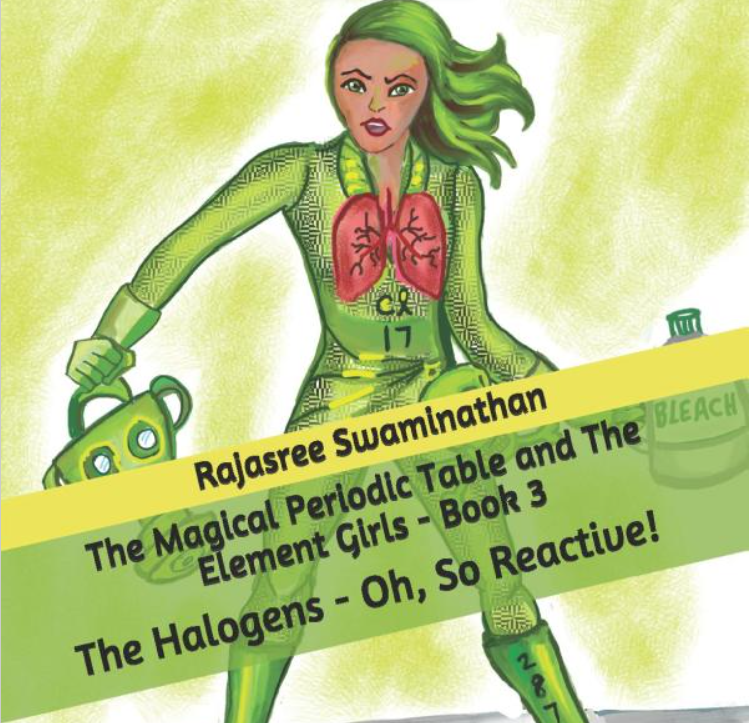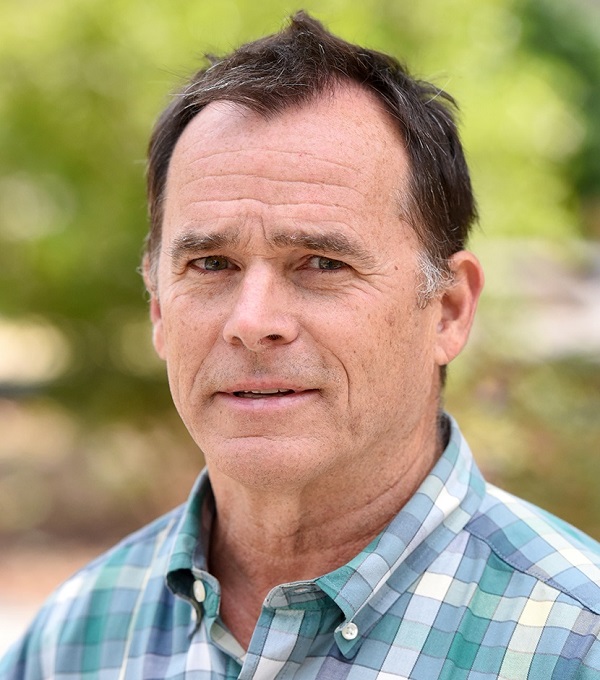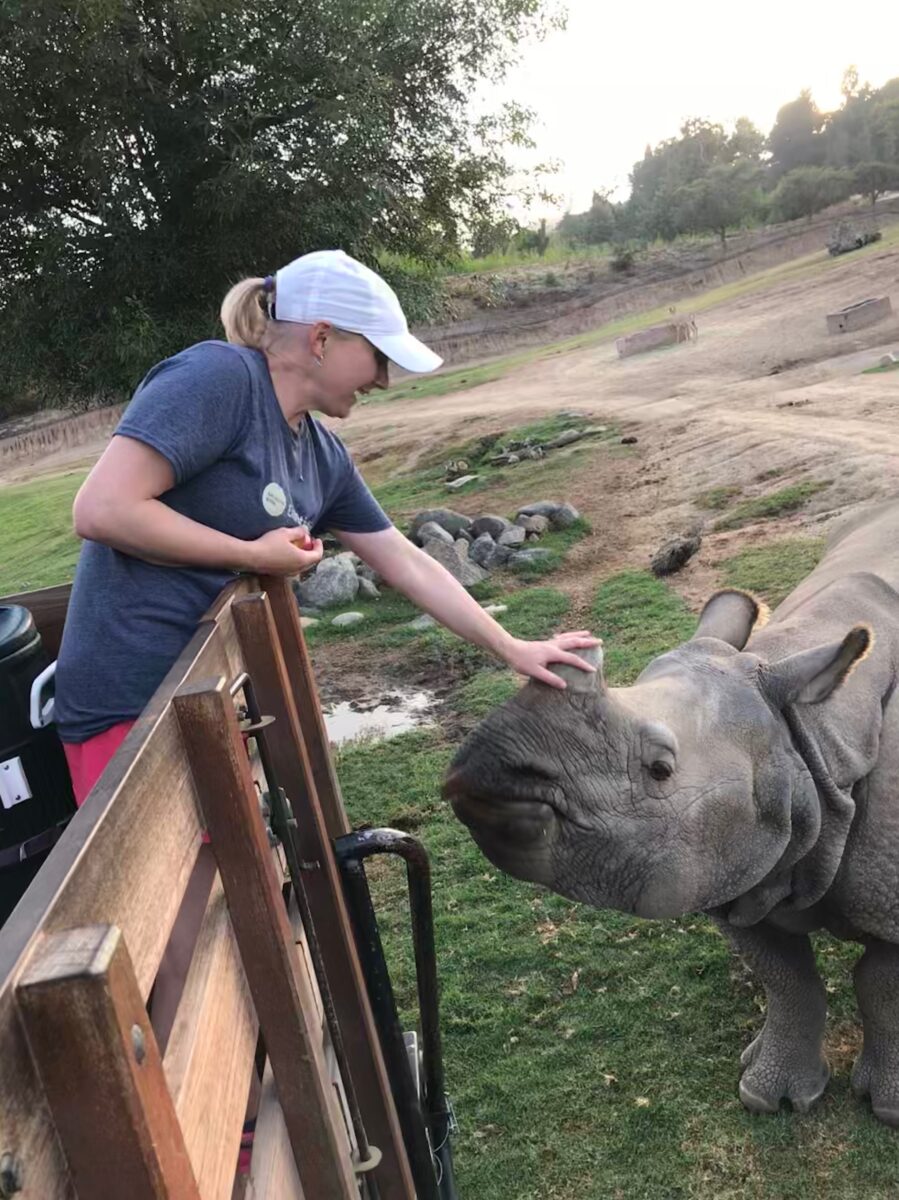topfaculty
Performing arts chair to release “The Cancer Parent’s Handbook” in February
Laura DeKraker Lang-Ree, Harker’s K-12 performing arts director, recently completed work on her first book, titled “The Cancer Parent’s Handbook: What Your Oncologist Doesn’t Have Time to Tell You.”
[UPDATED] Journalism director named Rising Star by Journalism Education Association
Whitney Huang ’08 was named a Rising Star by the Journalism Education Association, along with eight other teacher from around the country.
LID director selected for Google for Education AI+Edu Fellowship
Elizabeth Brumbaugh, Harker’s director of Learning, Innovation and Design, was selected last week to join the Google for Education+AI Fellowship.
Music teacher’s piece performed at music and neuroscience event
A piece composed by upper school instrumental music teacher Jaco Wong was performed in late March by the New World Symphony in Miami.
DEI director Davis co-delivers workshop at Trinidad and Tobago conference
Late last month, Harker DEI director Brian Davis attended the International Peace Research Association Conference in Trinidad and Tobago.
Science teacher releases third book in series about the elements
MS science teacher publishes second book on the elements
Grade 7 science teacher Raji Swaminathan recently published her second book about the elements, titled “The Alkaline Earth Metals – ROCKS and BONES!”
Upper school English teacher to deliver keynote at Lowell Celebrates Kerouac Festival
Upper school English teacher Charles Shuttleworth is giving a keynote lecture at this year’s Lowell Celebrates Kerouac Festival.
Teachers bring new methodologies, in-depth studies and sunshine to classrooms through Vegesna grants
Each year, the Raju and Bala Vegesna Foundation’s Teacher Excellence Program at Harker launches a group of teachers on voyages of discovery.
